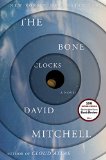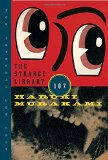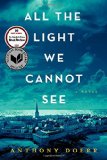-

Biography: The Incredible Expanding Form
by Bill Morris
Nowadays, human beings are no longer the sole suitable subjects for a biography, which is coming to mean an account of just about anything’s life, or history, or essence.
0 -

You’re (Not) My Favorite
by Hannah Pittard
Favorites — either being them or having them — were for suckers. Favorites were out.
5
- recent articles
-
Aliens, Mermaids, and Other Flights of Fancy 0
-
More Stark Than Bleak: The Millions Interviews Richard House 1
-
Judging Books by Their Covers 2015: U.S. Vs. U.K. 10
-
Why Big-Time College Football Sucks 19
-
The Book Report: Episode 5: ‘A Brief History of Seven Killings’ 4
-
Glad Hall: On the Cycles of Home 1
-
Loneliness, Interrupted: Edith Pearlman’s Honeydew 0
-
Loser on the Moon: On Leonard Cohen, Fandom, and Posterity 6
-
Those Who Left Us: Select Literary Obituaries from 2014 2
-
Alive with Disagreement and Dissent: On A.O. Scott, Politics, and Art 3
- View All
-
Get to Work: On the Best Advice Writers Ever Received 4
-
The Millions Top Ten: December 2014 0
-

Epic Fail: Bad Art, Viral Fame, and the History of the Worst Thing Ever
Mark O'Connell looks at Tommy Wiseau’s "The Room". the "Face-Palm Fresco Affair" and explores the secrets of viral fame.
Buy for $1.99
You may know that The Butter founder Roxane Gay had a banner year in 2014. The Year in Reading alum published a collection of essays and her debut novel. At Salon, she talks with Sara Scribner, sharing her thoughts on modern feminism, Lena Dunham and her plans for her next book.
0~Thomas BeckwithRecommended Reading: Hestia Peppe on Lindsay Hunter’s Ugly Girls.
0~Thomas BeckwithIn his recent collection of poetry, The Americans, David Roderick examines the spaces in which Americans make their homes, calling on his readers to view them in the context of American history. At The Rumpus, Brian Simoneau reviews the collection, which he says illuminates some of his own odd feelings about moving from Boston to Connecticut.
0~Thomas BeckwithYou’ve likely heard that artists these days are in trouble. The probability that your average creative person will make a living from their art is getting smaller by the day. But amidst all this hand-wringing, we forget one simple fact — it’s always been getting worse, and there’s always been something killing culture. At Slate, Evan Kindley writes about Scott Timberg’s new book Culture Crash, asking whether the Internet is really the dread force it’s often made out to be.
0~Thomas BeckwithLast week, Year in Reading alum Megan Mayhew Bergman released Almost Famous Women, a new collection of stories. Now, at Bookslut, Rebecca Silber talks with her about the book, which spans nearly a decade of meticulous reading and research. Sample quote: “We need to see women who chase wild dreams and professions as ardently as men.”
0~Thomas Beckwith“They’re pictures, not images; displays, not shots; illustrations, not compositions. They are respectful displays of performance—of the demonstrative theatrical antics into which Anderson lets his performers lapse.” Richard Brody on the film version of Thomas Pynchon’s Inherent Vice.
0~Thomas BeckwithWhat if the next crisis to hit the headlines brings an end to the world as we know it? It’s a mind-bending thing to contemplate, but it’s what our own Emily St. John Mandel tackles in Station Eleven, which made it up to the final five of last year’s National Book Awards. On a new episode of The Takeaway, Emily talks about the novel, exploring what’s left when civilization withers away. You could also read our interview with Emily about the book.
0~Thomas BeckwithAzar Nafisi thinks the best way to pin down a culture is to take a look at its canonical works of literature. In The Republic of Imagination, as Adam Begley details in a review in the Times Literary Supplement, she examines a few of America’s classic novels, including Babbitt, Huck Finn and The Heart is a Lonely Hunter. You could also read Jonathan Russell Clark’s review of the book for The Millions.
0~Thomas BeckwithNew this week: Amnesia by Peter Carey; Outline by Rachel Cusk; The First Bad Man by Miranda July; Binary Star by Sarah Gerard; Bonita Avenue by Peter Buwalda; The Girl on the Train by Paula Hawkins; Refund by Karen Bender; In Some Other World, Maybe by Shari Goldhagen; Harraga by Boualem Sansal; and West of Sunset by Stewart O’Nan. For more on these and other new titles, check out our Great 2015 First-Half Book Preview. Support The Millions: Bookmark this link and start there when you shop at Amazon.
0~Thomas BeckwithThe average book tour is filled with indignities, but none may be worse than getting kicked out of a cheap motel, which is exactly what happened to our own Bill Morris on the tour for his latest novel. At The Daily Beast, he recounts the unfortunate events that led to him getting booted from a Motel 6. You could also read his essay on listening to the audiobook of his own novel while on tour.
0~Thomas BeckwithRecommended Reading: Bronwen Dickey on Ben Metcalf’s Against the Country.
0~Thomas BeckwithIn The Age of The Crisis of Man, a new book by n + 1 co-founder and editor Mark Greif, the author examines the life and death of the concept of “man,” aka a unified humankind that could be said to suffer from particular conflicts. It was born in the thirties, with the rise of Fascism, but persisted for decades, eventually giving way to a more diversified view of humanity. In Tablet, Adam Kirsch dives into Greif’s arguments.
0~Thomas Beckwith
- Columns
- Staff Picks
- The Millions Interview
- Modern Library Revue
- Post-40 Bloomers
- Ask the Writing Teacher
- Ask a Book Question
- Millions Quiz
- Inter Alia
- Special Features
- A Year in Reading 2014, 2013, 2012, 2011, 2010, 2009, 2008, 2007, 2006, 2005
- The Millions Top 10
- Notable Articles
- Best of the Millennium, Readers' List
- Max's Reading Lists
Read More The Millions Top 10 December 2014
- 1
The Novel: A Biography Michael Schmidt
- 2
Station Eleven Emily St. John Mandel
- 3
The Bone Clocks David Mitchell
- 4
Reading Like a Writer Francine Prose
- 5
My Brilliant Friend Elena Ferrante
- 6
The Narrow Road to the Deep North Richard Flanagan
- 7
The Strange Library Haruki Murakami
- 8
All the Light We Cannot See Anthony Doerr
- 9
We Are All Completely Beside Ourselves Karen Joy Fowler
- 10
Dept. of Speculation Jenny Offill
























